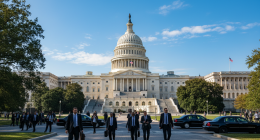Bolstering Domestic Industry
New Excise Tax Proposal
Thailand’s Ministry of Finance is exploring a plan to increase excise taxes on imported electric vehicles (EVs) that incorporate minimal local content, aiming to strengthen the country’s automotive sector. The proposal, under review as of July 2025, particularly targets electric pickup trucks to encourage domestic production. This move aligns with Thailand’s ambition to become a regional hub for EV manufacturing, a goal supported by the National Electric Vehicle Policy Board.
Addressing Trade Imbalances
Impact of Free Trade Agreements
A key driver of the proposed tax hike is the competitive edge enjoyed by Chinese EV manufacturers, who benefit from zero import tariffs under Thailand’s free trade agreement (FTA) with China. This has created disparities with automakers from other nations facing tariffs of 40% to 80%. The Finance Ministry aims to level the playing field by imposing higher excise taxes on EVs with little to no Thai-made components, such as locally produced car seats.
Supporting Local Production
Collaboration with Board of Investment
The Excise Department is working closely with the Board of Investment (BoI) to develop a support package for the electric pickup truck industry. Importers meeting BoI’s criteria, such as incorporating a significant proportion of Thai-made parts, could qualify for incentives like reduced taxes. This strategy is designed to attract investment and boost local manufacturing, aligning with Thailand’s 30@30 policy, which targets 30% of vehicle production to be zero-emission by 2030.
Thaksin’s Call for Reform
Protecting the Automotive Ecosystem
At the “Unlocking Thailand’s Future” conference on July 17, 2025, former Prime Minister Thaksin Shinawatra advocated for higher excise taxes on imported EVs with low local content. He argued that FTAs granting zero tariffs to certain countries disrupt Thailand’s automotive ecosystem. Thaksin suggested that foreign manufacturers source components like seats from Thai suppliers to qualify for lower tax rates, fostering local industry growth.
Environmental and Economic Benefits
Reducing Pollution through EVs
Thaksin also highlighted the environmental upside of promoting EV adoption, noting that Thailand imports 60 million liters of diesel, 25 million liters of gasoline, and 10 million liters of other fuels daily—equivalent to a 40,000-megawatt power plant’s output. Shifting to EVs could significantly cut pollution, supporting Thailand’s carbon neutrality goal by 2050. A robust EV sector would also create jobs and drive technological innovation in the region.
Green Energy Ambitions
Vision for Sustainable Power
Beyond tax reforms, Thaksin proposed transforming Thailand into a green electricity hub, leveraging solar energy to generate 40,000 megawatts. This would require 1.4 million rai of land, which he believes is feasible. He suggested that the Electricity Generating Authority of Thailand (Egat) establish a dedicated “Green Egat” division to lead this initiative, reinforcing Thailand’s commitment to sustainable energy and supporting the EV industry’s growth.









